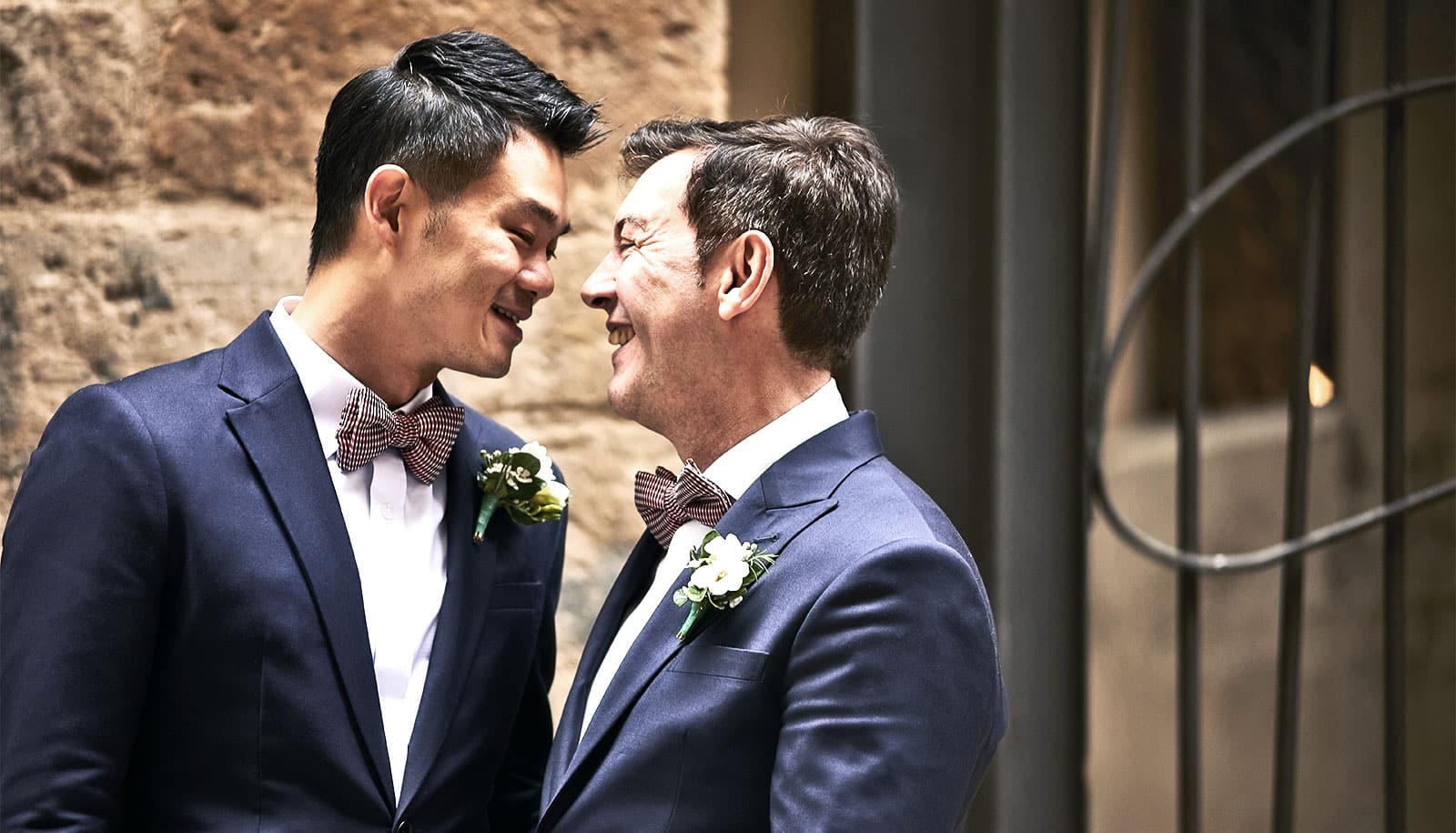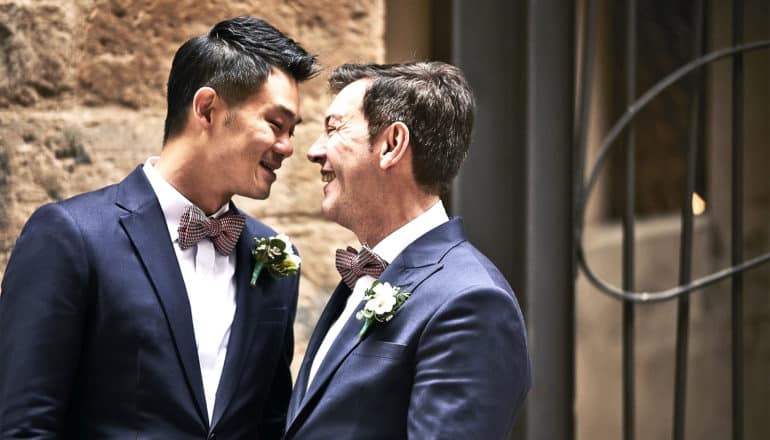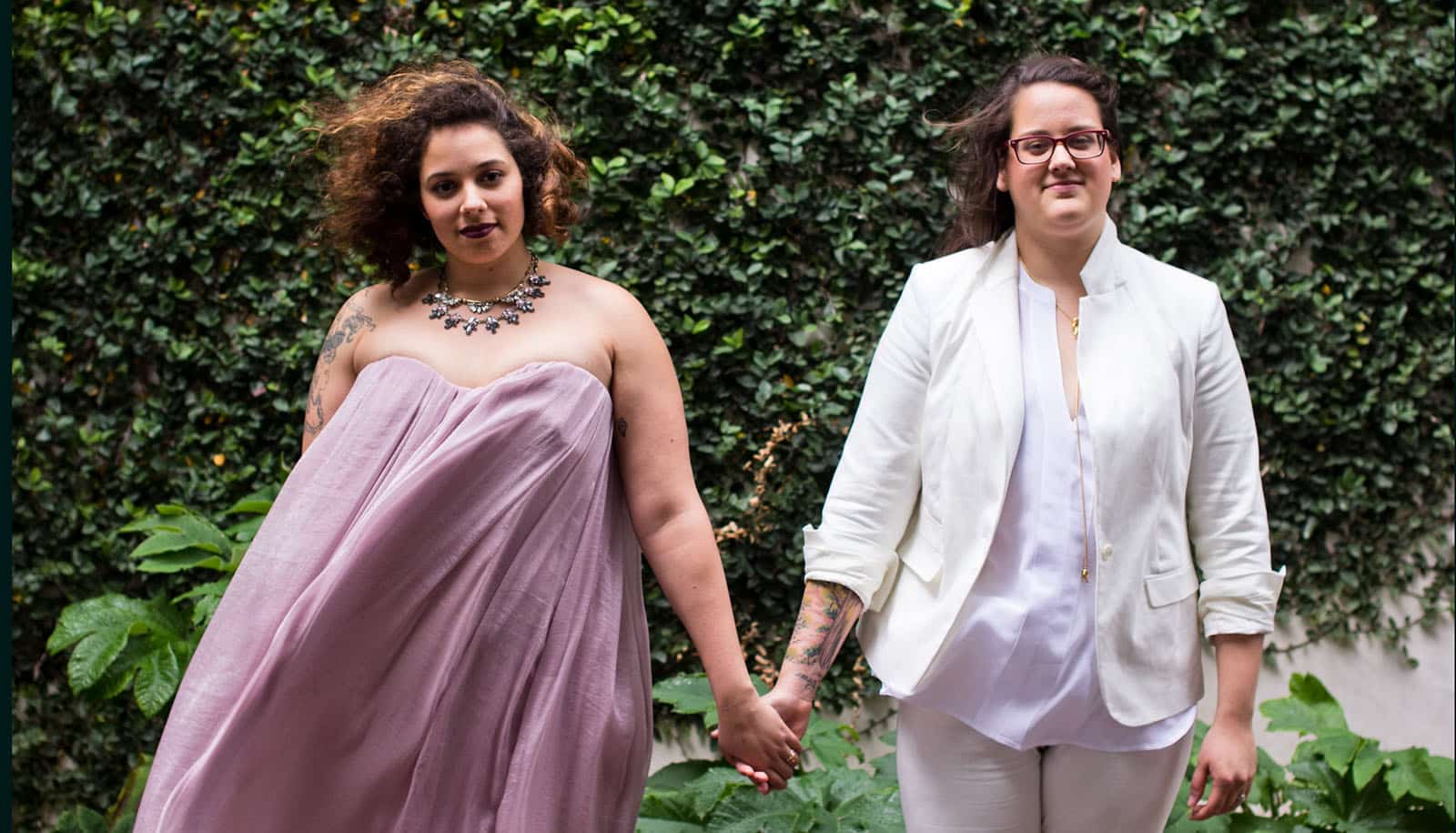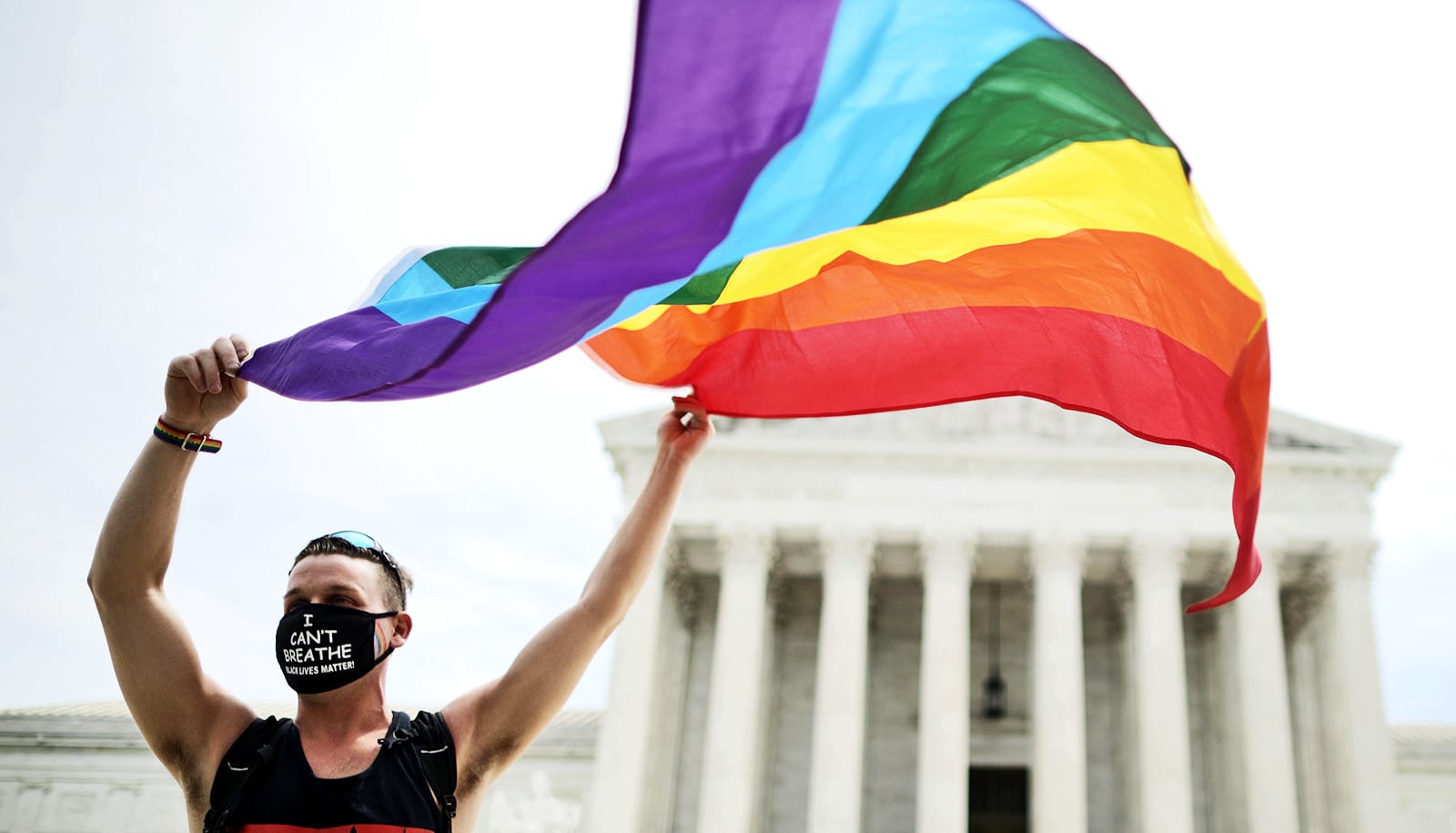
(Credit: Getty Images )
U.S. same-sex couples get marriage licenses without discrimination
A new study finds no evidence of systematic discrimination against same-sex couples seeking marriage licenses in the US.

A new study finds no evidence of systematic discrimination against same-sex couples seeking marriage licenses in the United States.
After the Supreme Court legalized same-sex marriage nationwide in 2015, Kim Davis, a county clerk in Kentucky at the time, refused to issue licenses to same-sex couples. Roy Moore, then a State Supreme Court Justice, followed suit, demanding Alabama county officials stop issuing marriage licenses altogether.
Curious about whether these cases reflected a wider trend, Kenneth Lowande, an assistant professor of political science and public policy at the University of Michigan, decided to study the issue and found no evidence that that was the case.
“From a big-picture standpoint, that’s good news, if you want the law to be enforced the way the US Supreme Court has advised it should be,” says Lowande, a faculty associate at the Institute for Social Research’s Center for Political Studies. “One possible explanation is that this is a set of people who tend to be local officials, many of whom are unelected with no particular ideological bent.”
Researchers reached out to more than 4,000 jurisdictions that issue marriage licenses in the 48 contiguous states (numerous private individuals grant marriage licenses in Hawaii; Alaska issues its licenses through cities, counties, and the state; and the District of Columbia operates a single marriage bureau).
Lowande and coauthor Andrew Proctor drafted an email that requested information about getting a marriage license. The email was randomized to be sent from three combinations of couples: male same-sex couples, female same-sex couples, and heterosexual couples. The researchers chose names used in the emails that provided a “clear signal of gender,” they say.
Researchers also sent the emails in four different combinations: from one man in a same-sex couple, from one woman in a same-sex couple, from the woman in a heterosexual couple, and from the man in a heterosexual couple.
Then, the researchers evaluated the responses these emails received to determine the rate of response. They determined there was no difference across same-sex couples compared to heterosexual couples: county officials gave no less information, were no less likely to say congratulations, and were no less likely to respond.
Lowande says the fact that the first and last names used in the emails read as white across all regions in the country, constrains the results. The researchers believe there may be important interactions between race and sexual orientation, but plan to leave that to future research.
“A big issue with these types of experiments is power, and the more treatments you have, the harder it is to detect a signal from the noise,” Lowande says. “If we multiply the number, we’re no longer going to be able to detect subtle outcomes from the research design.”
To get accurate measurements of whether race or ethnicity play a factor into issuing same-sex licenses would require a separate study. Adding a set of first and last names that sounded African American or Latinx would increase the treatment conditions of the study from four combinations to 12 combinations.
“This order, which changed the law overnight in the US, doesn’t seem to have widespread noncompliance at the local level,” Lowande says. “There are 6,000 different individuals who have the authority to issue marriage licenses who are totally decentralized.
“But one court says something else, and now all those jurisdictions are required to do something different. This is a success story for judicial directives and respect for the rule of law.”
The study will appear in the American Journal of Political Science.
Source: University of Michigan
The post U.S. same-sex couples get marriage licenses without discrimination appeared first on Futurity.
Share this article:
This article uses material from the Futurity article, and is licenced under a CC BY-SA 4.0 International License. Images, videos and audio are available under their respective licenses.
Related Articles:
What the Respect for Marriage Act does and doesn’t do
Dec. 2, 2022 • futurityWhy the Supreme Court ruling on sex is ‘one for the history books’
June 23, 2020 • futurityLinks/images:
- https://www.futurity.org/poll-services-same-sex-couples-1639522/
- https://www.dropbox.com/s/ef0tzh3gnpnkt9t/lowande-proctor-lgbaudit.pdf?dl=0
- https://news.umich.edu/u-m-study-finds-no-discrimination-in-issuing-same-sex-marriage-licenses/
- https://www.futurity.org/marriage-licenses-laws-same-sex-couples-2222042-2/
- https://www.futurity.org


